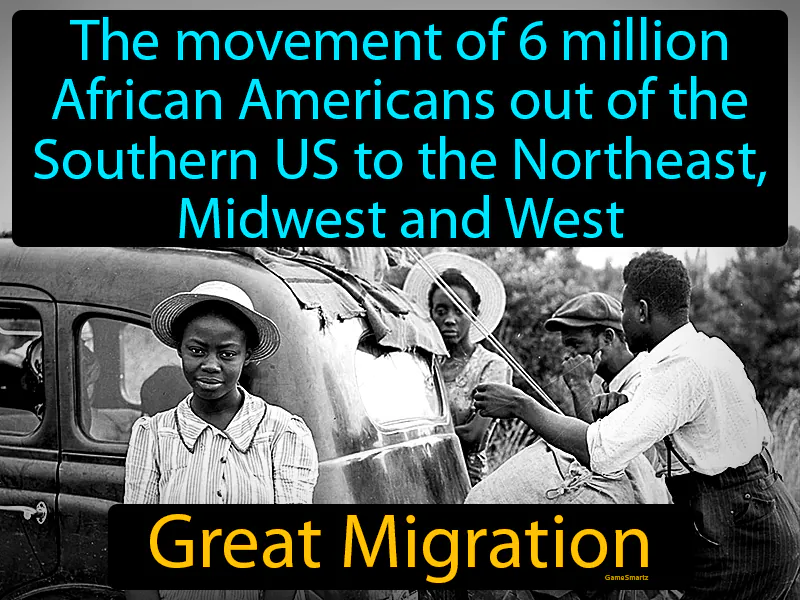Great Migration

The Great Migration was an important event because it significantly changed the demographics and culture of the United States during and after World War I. African Americans left the South to escape racial discrimination and seek better job opportunities in the North, which were available due to the war effort's industrial demands. This migration highlighted the ongoing struggle for racial equality and economic opportunity, issues that continue to be relevant today. The movement helped lay the groundwork for the Civil Rights Movement, which sought to address these inequalities on a larger scale. Today, the cultural contributions and diversity in major cities, as well as ongoing discussions about racial equity and job access, can be traced back to the Great Migration, impacting how we work and live together in a multicultural society.
Practice Version

Great Migration: The movement of 6 million African Americans out of the Southern US to the Northeast, Midwest, and West. Great Migration. It was a significant relocation during the 20th century where African Americans sought better opportunities and escaped racial discrimination in the South.